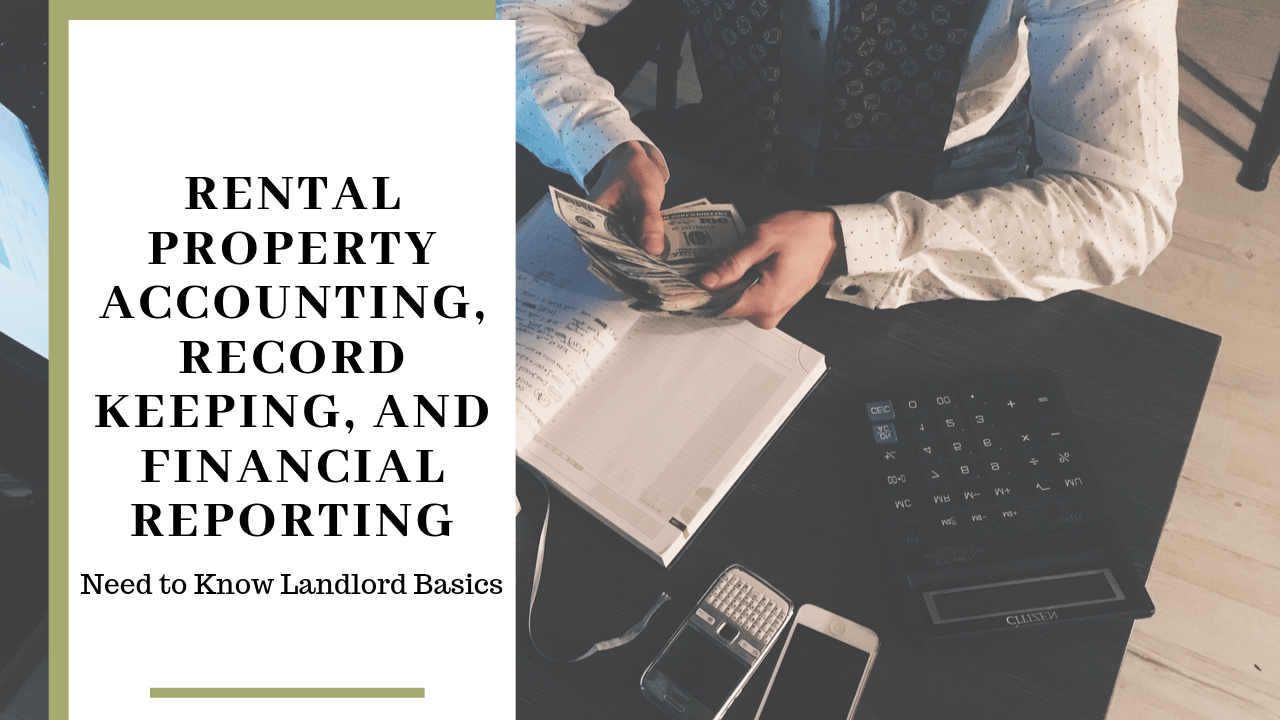Rental Property Accounting, Record Keeping, and Financial Reporting: Need to Know Landlord Basics
Florida PMServices • November 29, 2019

When you rent out a home, you’re pretty sure what you need to focus on: finding tenants, signing a lease, responding to maintenance, and collecting rent.
Those are the basics, but you also need to be prepared to manage your bookkeeping and accounting. This isn’t a part of real estate investment that many people think about, but it’s important. We’re sharing some basic things to consider when you’re preparing to track your financial performance as it pertains to your rental home.
Organize Income and Expenses
At the simplest possible level, you’ll need to track your income and expenses. When it’s time to file your taxes, you’re going to need to demonstrate how much you earned on your rental property and how much you spent maintaining it. This has to be clear, accurate, and transparent. Even if you work with an accountant or a CPA, you’re likely the one who will be collecting the checks and paying for repairs. Make sure you can clearly see what you’re earning and what you’re spending on a monthly, quarterly, and annual basis.
Budgeting and Forecasting
Budgeting is incredibly important, especially when it comes to things like maintenance. You should set aside a maintenance reserve, if you can. Put a small portion of the monthly rent you collect into a reserve fund so you’re prepared when you have to replace a water heater or pay for an electrician. Set up a budget for recurring expenses you can plan on, such as landscaping or pest control. Forecast when you’ll have to make big expenditures. Plan for your new roof, for example, and estimate the lifespan of your air conditioning unit.
Invest in Technology
If you’re still using a legal pad and a pencil to keep track of your accounts, it’s time to modernize. There are a lot of great software programs out there, even for individual landlords who only have one property or a handful. If you keep everything digital, you can access it from anywhere in the world, and that can be extremely helpful when emergencies pop up. It should be accessible, clear, and transparent. If you find yourself having to go to court, for example, you’ll want to be able to share an accounting breakdown for a tenant you’re evicting for nonpayment of rent. Dragging your paper ledger into the court room is not as convenient as printing a spreadsheet.
Consider Professional Property Management
There are a lot of excellent reasons to use a professional property management company, and accounting services are one of them. A good Boca Raton property management company will provide accounting and keep you in the loop. You should expect monthly financial statements, reports when you need them, and an online portal that allows you to view maintenance invoices, lease documents, and security deposit funds at any time.
We would be happy to talk more about our accounting practices or share additional tips about how to stay organized financially. If you have any questions, please contact us
at Florida Property Management Services.













